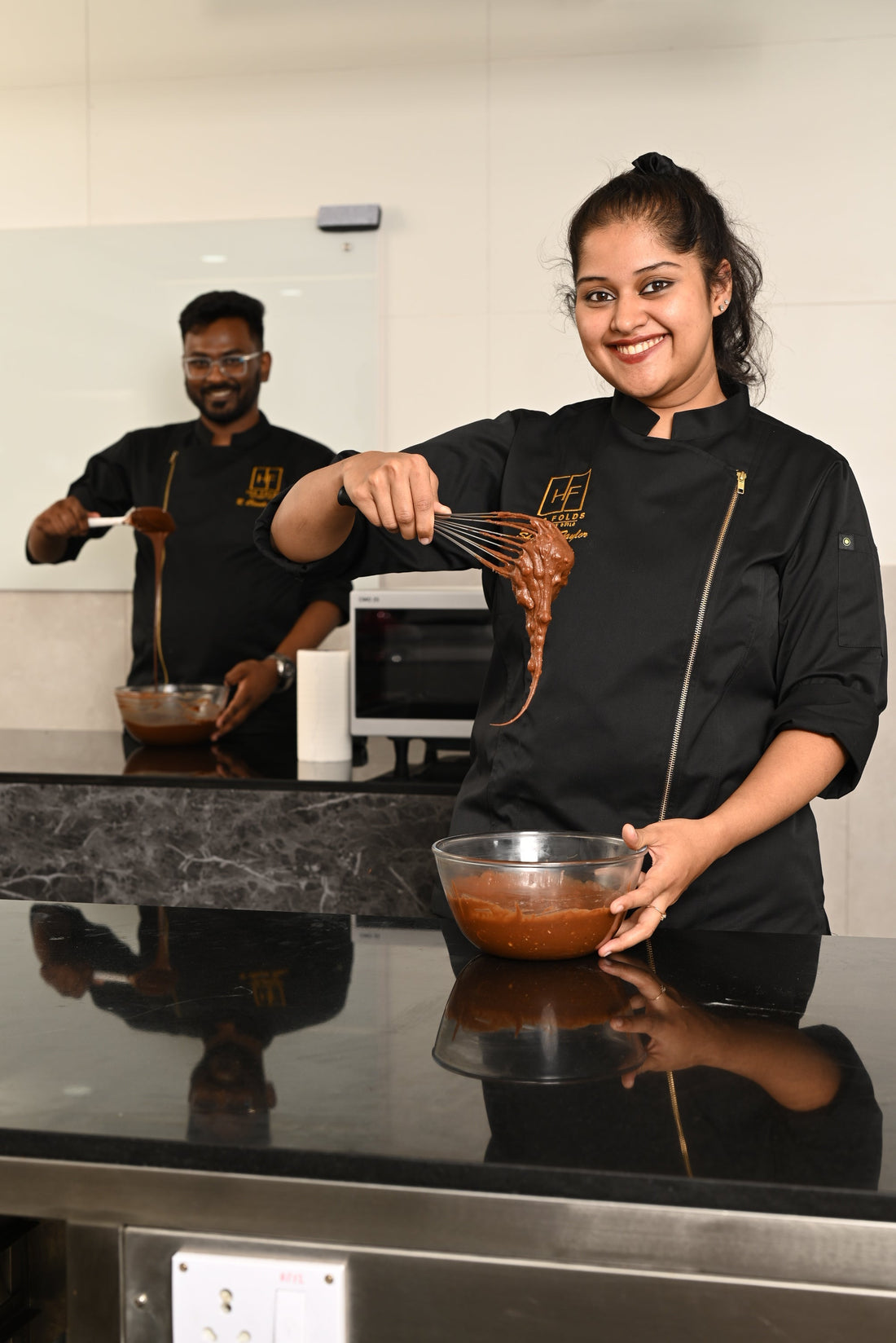
A Novice Bakers Companion: A Guide to Baking
Share
The world of baking is both fascinating and intriguing, especially when you start out. As a novice you will sometimes wonder what makes baking so easy, yet so complex. Why do certain recipes turn out perfectly, while others don't? The most resounding answer is the fact that baking is as much science as it is a form of art and creativity. As a person starting out baking, we tend to overlook the science involved in baking.
There are various key points to keep in mind while baking. Unlike cooking that’s mostly based on taste and feel, baking is based mostly on balance and ratios. While starting out it is important to follow tried and tested recipes that will ensure you guaranteed results. Once you feel comfortable with how a product’s texture and look is, only then should you start experimenting.
Read the recipe properly: it is important to read the recipe and check if you have all ingredients available before you start. Initially it's best not to consider substitutes unless suggested by the creator of the recipe.
Organize your workspace: Gather all equipment from bowls and spatulas, to whisks and ladles that would be required in facilitating your baking and making it convenient and easy.
Quality ingredients: usage of quality ingredients will ensure quality in your final product. Source ingredients that are seasonal, sustainable and of exceptional quality.
Scale! Scale! And Scale! Correctly: Measure out all ingredients as per the mentioned recipe correctly. Don’t follow assumptions. An accurate weighing scale or cup and spoon measures are recommended for the same. As mentioned earlier, baking is a science. It relies on precise measurements, proven techniques and tested recipes. It is necessary to tare your weighing scale to zero each time you measure a new ingredient. Also remember that it is important not to count the weight of the bowl into which you may be scaling.
Room temperature ingredients: While baking, it is good to use ingredients as close to room temperature as possible as they mix and emulsify better. Adding cold eggs to creamed butter will cause the butter to split and hence it is important to use ingredients as close to room temperature as possible.
Do not over mix or under mix: Depending on what you are baking its important to understand the ingredients and mix accordingly. Undermixing may lead to a product being heavy and dense while over mixing may lead to the collapse of a batter like that of a sponge or macarons.
Preheat the oven: All recipes would require you to preheat your oven 15 to 30 minutes prior to baking depending on your oven. Most recipes will specify baking temperatures. Preheating is important so that your baked goodies start cooking as soon as they are placed inside the oven.
Correct baking temperatures: it is important to understand your oven and set the thermostat accordingly. A good oven thermometer is an important equipment while checking how efficiently your oven works. Setting the temperature too high will colour your baked product too quickly, however it may remain raw inside. This happens especially while baking a sponge cake. Putting a baked product into a cold oven or at a low temperature would mean that the product will dry out or not colour well.
Grease and line your moulds: Grease your moulds with butter and dust flour or line them with baking paper to ensure easy removal of your products after baking.
Do not open the oven door multiple times during the baking process: opening the oven door during baking would result in the temperature of the oven dropping. The cold air entering the oven may also cause the product being baked to collapse and deflate.
Patience is key: there are no short cuts while baking. A bread will take its time to proof before baking, a delicate sugar flower will take time to dry before assembly. You cannot rush the process. Rushing would mean yielding less than perfect results. Do not attempt to bake when you are short on time.
Check for doneness: Use visual cues like colour to check for doneness. You could also consider touching the product gently to check for a spring back or inserting a skewer or toothpick to check if it comes out clean.
Make baking enjoyable: Have fun while baking. Enjoy the process. Baking can be a great stress buster and it is important to have fun and enjoy the process.
To summarize, while baking is an artistic expression of creativity allowing various combinations of flavours, textures and ingredients one must remember that it is also a science, that relies on precise measures, temperatures and techniques to ensure reliable baking results. Successful baking requires a balance between artistic intuition and scientific understanding. Bakers must combine creativity with careful attention to detail, understanding how ingredients and techniques interact to achieve desired outcomes. Ultimately, baking is about more than just producing edible creations—it engages all the senses, from the aroma of freshly baked goods to the texture and taste of the final product. This sensory experience is at the heart of both the artistry and science of baking.